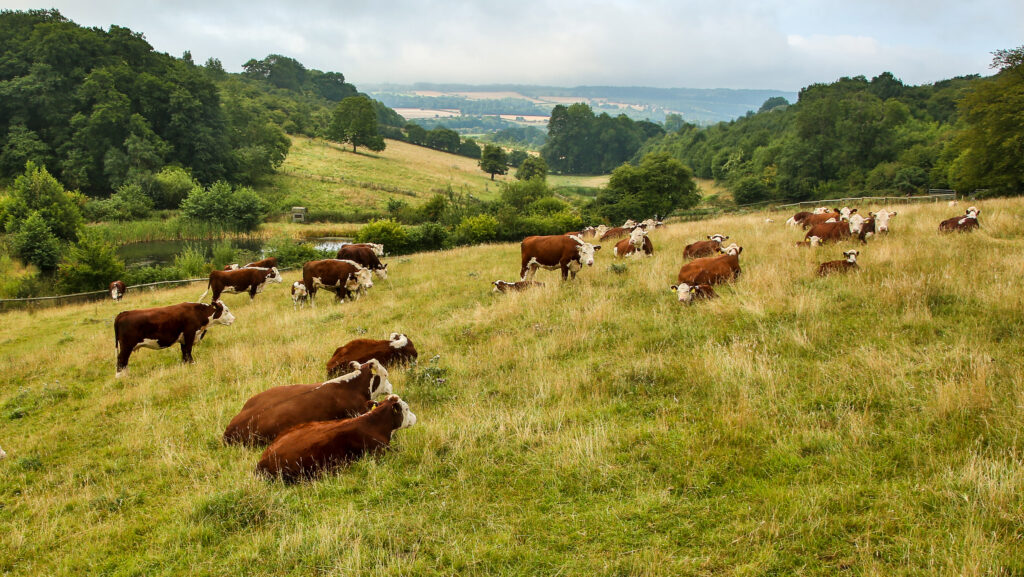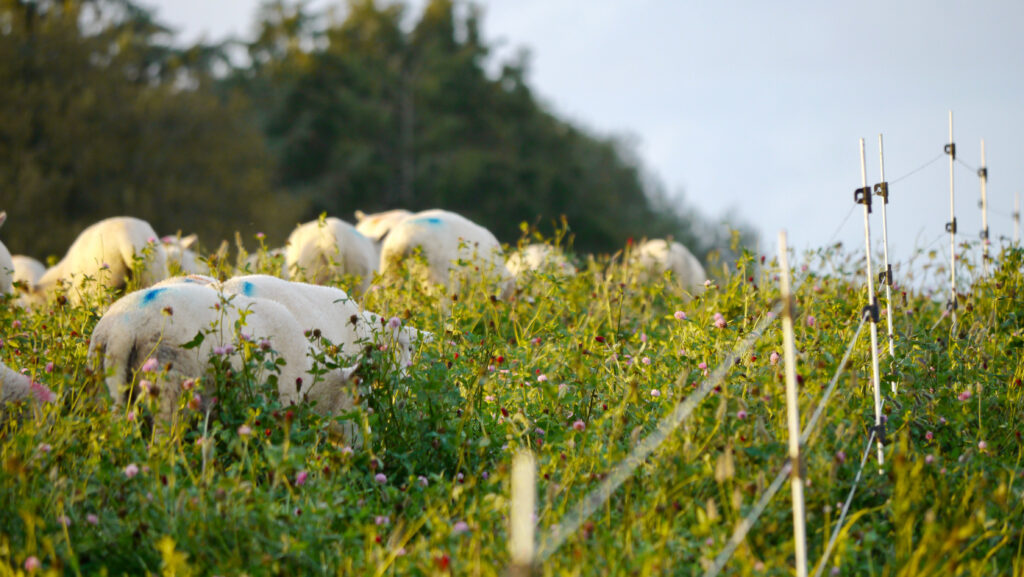Farmers warn carbon-rich pastures may be lost under SFI incentives
 © Ian Boyd, Cotswold Beef
© Ian Boyd, Cotswold Beef A coalition of farming and environmental groups is warning Defra of the “unintended consequences” of incentivising farmers to remove permanent pastures for higher-paying options under the Sustainable Farming Incentive (SFI) scheme.
According to government statistics, almost 40% of land in England consists of permanent pasture, which acts as one of the most important “carbon sinks” for climate change mitigation.
However, higher SFI payment rates for options such as £382/ha for herbal leys, compared to £102/ha for legumes in improved grassland and £151/ha for low input grassland, are incentivising farmers to destroy permanent pastures, resulting in a loss of grassland habitat.
See also: Farmers frustrated by slow rollout of 2024 SFI scheme
Pasture for Life has sent a letter to Defra criticising the “missed opportunity” of proper valuing of permanent pasture under the SFI.
The letter has been supported by 30 organisations, including the National Sheep Association (NSA), the Soil Association, the Nature Friendly Farming Network and Plantlife.
Jimmy Woodrow, director at Pasture for Life, said: “Our grasslands play a vital role in delivering food security, carbon storage and include some of most biodiverse habitats. They are a strategic national asset.
“The evidence suggests that farmers are using the SFI to plough up their pastures and to start again.”
Mr Woodrow added that “only the lucky few or determined farmers” can access the higher-paying species-rich options (GS7, GS8) available under higher tier agri-environment schemes, or the new GRH6 option, which all pay £646/ha.
“A better runway is required to ensure we’re delivering species-rich grasslands at scale,” he said.

© Olly Walker
Environmental cost
NSA chief executive Phil Stocker said: “Some of the SFI payment rates for herbal leys are really attractive.
“There are farmers who are spraying off and ploughing up good permanent pastures to put into these higher-paying options.
“In doing so, they are damaging something which I just don’t think there is enough recognition of, which is ordinary permanent pastures.
“To plough them up risks releasing a load of carbon and nitrous oxide. It’s bad for the environment.”
Bryan and Liz Griffiths, who run sheep and beef on an all permanent pasture farm in Burrington, North Devon, recognise that herbal leys have a place in livestock stocking but have concerns that Defra is incentivising farmers to destroy stable, long-established and productive permanent pastures to establish a “short-lived” arable crop (herbal leys).
Mrs Griffiths added: “The variety of traditional permanent pastures seen across the country will deliver very similar outcomes for soil health compared with the ‘one-size-fits-all’ SFI herbal ley.”
Jo Riggall, grassland advocacy officer at Plantlife, said: “This shows the need for government to take a strategic approach to permanent grasslands as a national asset – yet there is currently no plan or dedicated resource within Defra.”
Defra ‘exploring options’
A Defra spokesman said: “We have expanded and increased prices in our grassland offer and will continue to optimise schemes and grants in an orderly way, ensuring they produce the right outcomes for all farmers, while delivering food security and nature recovery.
“We are aware of concerns around the way in which herbal leys are being used and applied in some cases and will be working closely with the sector to explore the issue and options.”
